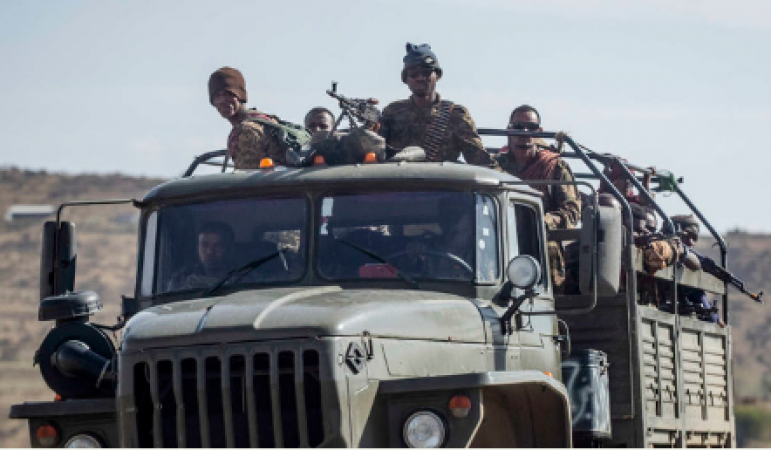
Washington: In light of improvements in human rights, the US has loosened some aid restrictions for Ethiopia, according to White House national security spokesperson John Kirby.
According to Kirby, the improvement in human rights took place especially after the Ethiopian government and forces from its Tigray region signed a cease-fire agreement in November.
The agreement put an end to a war that killed tens of thousands, caused millions to be displaced, and caused hundreds of thousands to go hungry.
Rights organisations claim that violence, including ethnic cleansing, has continued in Ethiopia's northern Tigray region despite an overall decline in abuses since the truce.
Also Read: Consequences of Qur'an Burning in Sweden Highlight the Impossibility of Tolerance for Intolerance
While pausing food aid, Kirby said, "We are lifting some restrictions on certain kinds of assistance."
This choice, in our opinion, broadens the range of options we have to support a lasting peace in Ethiopia.
According to the US State Department, this assistance would promote harmony and peace.
"The focus of resumed bilateral assistance will be to support further implementation of the cessation of hostilities agreement and promote sustainable peace and reconciliation through efforts including demining, transitional justice, and accountability," said a spokesperson for the State Department. The spokesperson continued, "We will continue to express our concerns and speak out about reports of serious human rights abuses, including those committed by non-state actors in western Tigray, and urge the government to protect civilians and prosecute offenders.
Also Read: Netherlands' King Apologizes for Nation's Role in Slavery on 150th Anniversary
During the conflict, the US government cut off Ethiopia's access to the trade advantages of the US African Growth and Opportunity Act, or AGOA, a duty-free programme that had benefited the nation's textile industry.
A spokesperson for the White House National Security Council stated that the process for considering AGOA access is different from the one that was announced on Friday. According to this spokesperson, the US Trade Representative is in charge of the annual interagency review of sub-Saharan countries' eligibility for AGOA benefits.
As a result of donations being taken away from those in need, the US Agency for International Development announced earlier this month that it was suspending food aid to Ethiopia. A day later, the UN World Food Programme followed suit.
In the second-most populous country in Africa, more than 20 million people require food assistance, largely as a result of the war in northern Ethiopia and the worst drought to hit the Horn of Africa in decades.
In March, the US came to the conclusion that all parties had committed war crimes.
Both Ethiopia and its neighbour Eritrea, whose troops fought alongside Ethiopian troops against Tigrayan forces, rejected the accusations